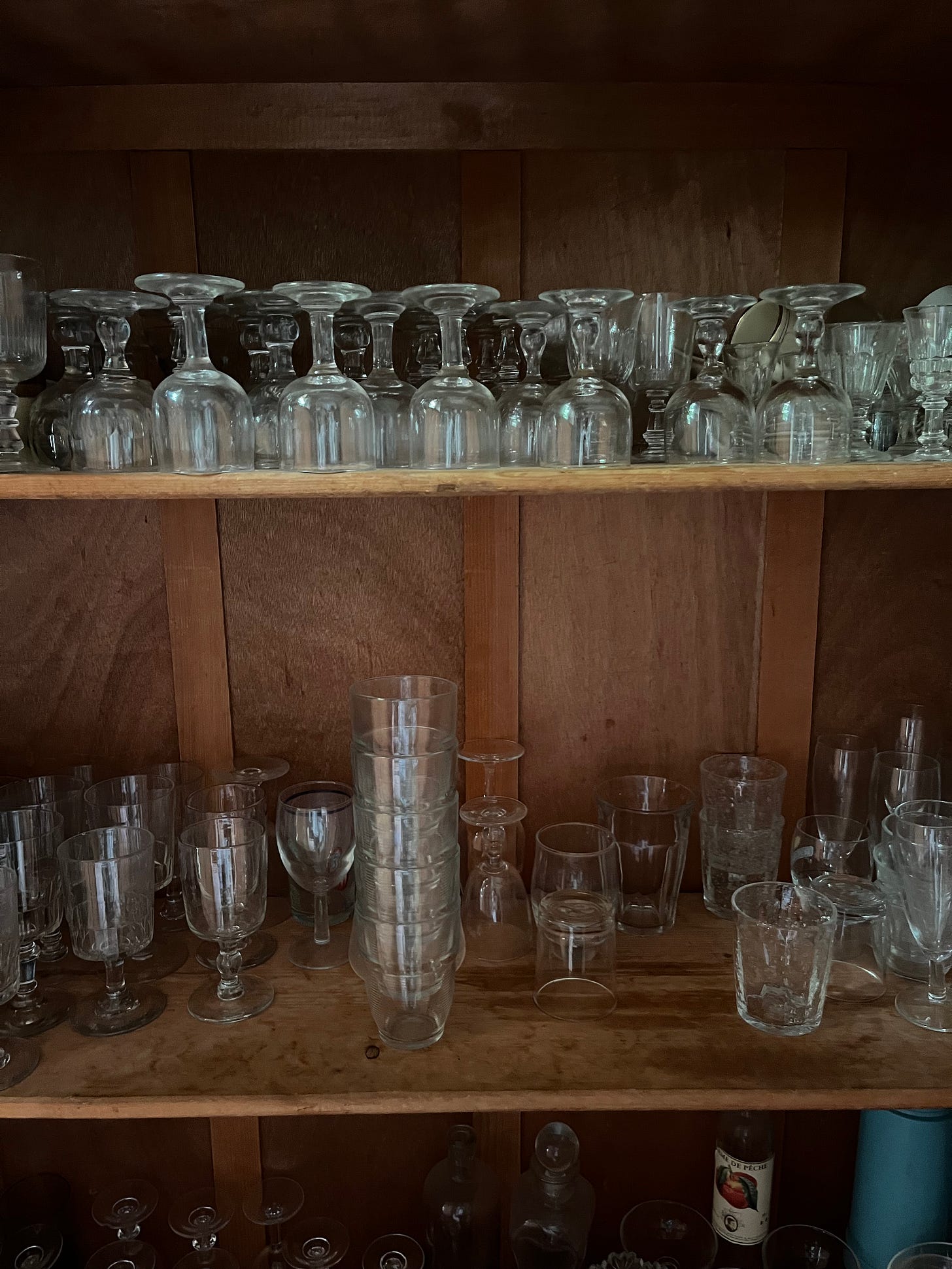Ómós Digest #193: Setting the Table for Ómós
From childhood vide greniers to sustainably crafting a dining experience with soul. By Cúán Greene.
Dear Readers,
Moving to a tiny rural town in France as a family in 2007 was une expérience. For one, our house came without heating, bar the enormous hearth in the kitchen. The wall paint was peeling and the rooms were bare, completely unfurnished, with a layer of dust covering every inch of the house like a white blanket. Subsequently, my parents, with young children and a limited budget, had to convert a cold and empty building in the middle of a rural French village into a home. By default, they reverted to affordable vintage furniture. The plates that graced our dining table, along with almost every other piece of furniture in the house, had once belonged to somebody else. Our beds were over 50 years old and creaked loudly. The steel and brass locks and handles that bolted the doors were varied, some with keys as long as your forearm. Mahogany dressers and tables picked up for pennies at markets were given a second lease of life through a few coats of paint and the draping of old French linen, to which my mum, hands on her hips, would look at triumphantly.
As my mother’s ‘addiction’ worsened, our weekends as children were increasingly spent at these garage sales or vide greniers, or indeed salvage yards. One shop in particular stood out - Emmaus. Emmaus is a social enterprise that welcomes people experiencing homelessness, addiction or other forms of hardship. The enterprise offers people meaningful work, a place to live and a supportive community. These ‘companions’ (as they are known) collect, sort, repair and resell donated goods to people like my mother, those with tight budgets or with an eye for a bargain (she qualified for both), looking to furnish their house with beautiful French antiques. Even as children, we appreciated my mother's approach. There was a problem, though. Emmaus was located next to my school. Looking a little battered and frequented by questionable characters, Emmaus had garnered a reputation amongst the students as being a place for ‘les clochards’ where the poor shopped. Therefore, this secret I was determined to keep away from my school friends - failure to do so might result in the tarnishing of any reputation I was eager to protect.


